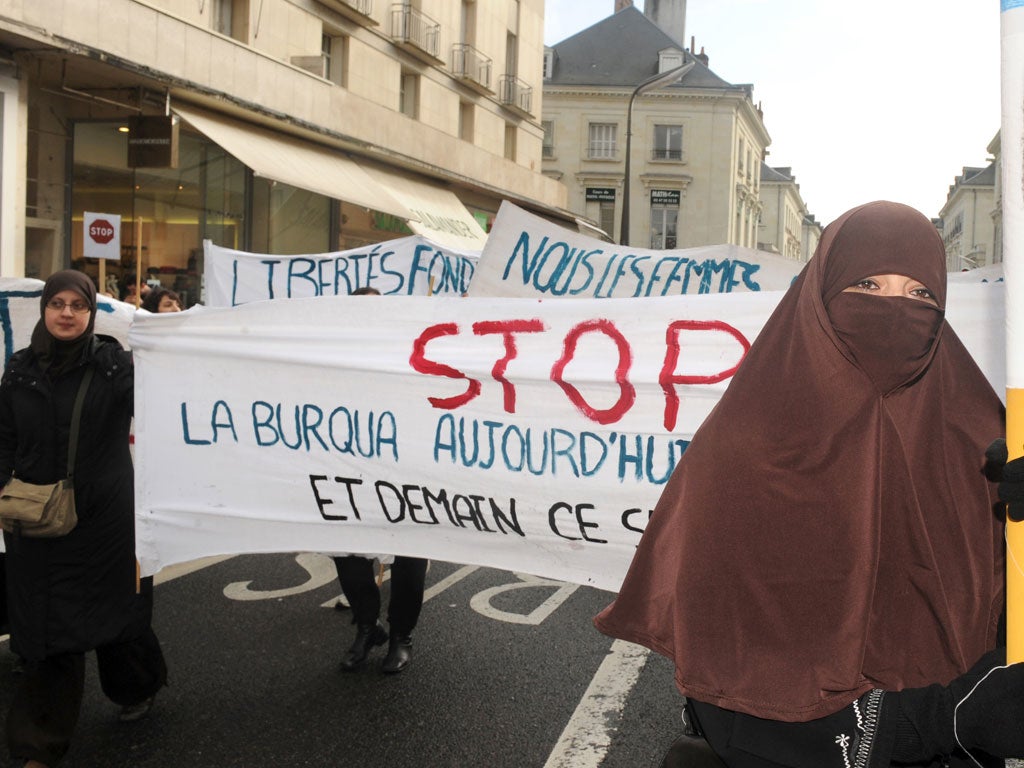When did Islamophobic attacks become the norm for the French media?
The right wing media have hijacked France's proud secularist tradition and turned it into an attack on muslims

When last week's cover of normally stern French magazine Le Point appeared online, the consensus on social networks said it was a hoax. Le Point is no tabloid. It is a serious and well respected conservative magazine.
Running the headline: "Brazen Islam...in school cafeterias, hospitals, and swimming pools" the cover featured a niqab-clad woman arguing with a French policewoman. It had to be a joke, but sadly it wasn't.
Le Point’s cover was widely condemned on social networks, and parodies of it quickly appeared. “Brazen Judaism and its garlic humus", “Brazen gays and their trimmed eyebrows,” “The brazenly disabled and their parking spaces," illustrated how French Muslims probably felt when they passed the newsagent last week.
When Socialist Interior Minister Manuel Valls was asked during a popular TV talk-show whether he found the cover shocking, he brushed it off, saying “It expresses a reality." He went on to say: “What I find shocking, and what I will always find shocking, is a fully-veiled woman.”
That was it. The second religion in France gets insulted on the front cover of one of the country's most popular magazines - something that could never have happened with any other religion or community, as pointed out by the numerous parodies - and the Interior Minister, supposedly in charge of security of all French citizens, claims on a widely-watched TV show that it’s fine, and no one contradicts him.
It doesn’t matter that at the time of its public ban in 2011, the niqab was estimated to be worn by less than 2,000 out of 65 million French people. It doesn’t matter that - as was later revealed - the infamous picture was taken during a protest in September involving no more than ten women. To Manuel Valls, to Le Point, the terror of ten women protesting is “a reality” that deserves to be on the front page of a national magazine.
This might be because stigmatising Islam has become extremely common in France.
It is actually not the first time Le Point has delighted us with anti-Islam covers. A French blogger compiled a list of all the religious covers of the magazine since 2005, and came up with five “Islam-related covers” in the past two years, including “The Islamists and us: their strategy to infiltrate the West,” “Hunting the Christians - Islamic crusade”, and in February 2011, to welcome the beginning of Arab revolutions, “The Islamic spectre.”
Unfortunately, this montage made in September shows that Le Point is no exception.
Two weeks ago, Le Figaro also published a survey under the headline “the image of Islam in France is seriously deteriorating.” The survey showed that 68 per cent of French people think the main reason for Muslims’ lack of integration is... “their refusal to integrate in French society,” and 43 per cent think the presence of a Muslim community in France is “a substantial threat to the country’s identity.”
To Marwan Muhammad, a spokesperson for the Collective Against Islamophobia in France, these results are "worrying, but for the wrong reasons.” He says that linking “Islam” to “fear” in a survey’s question will automatically impact the answer, and affect the results. “When we see the impact these kind of studies can have on the perceptions citizens have of one another... we can wonder about the responsibility of survey institutes, and mainly of those who ask for these surveys,” he says.
Sometime, a long time ago, I remember islamophobia being a far-right Front National’s prerogative. Things have changed. In the middle of the Euro-crisis and in the last presidential campaign, Nicolas Sarkozy made halal meat a campaign theme. It was, he said, “the main concern of French people.”
Former government spokesperson Jean-François Copé (now running for leadership of Sarkozy’s UMP party) claimed that children were prevented from eating their pain au chocolat outside their school gates during Ramadan. Nevermind that Ramadan happened to fall during the French summer holidays for the past two years, and thus no children would be outside the school gates, anyway. Some joked on Twitter about Le Point being sold in bakeries alongside Copé’s “pains aux chocolats” last week.
When Sarkozy’s Interior minister Brice Hortefeux said, referring to Arabs, that “We always need one. It's when there are lots of them that there are problems,” the Socialist opposition referred to his statement as "shameful and unspeakable" and called for his resignation. The same could be said about the current French Interior Minister’s indifference to Le Point’s cover.
Indeed, things have changed. Apparently it’s now fine for the whole political class to stigmatise Muslims and Islam.
The Collective Against Islamophobia in France, who distributed free pains au chocolat in the streets after Jean-François Copé’s comment, is now launching a national campaign called “We are the nation too” with the aim of “portraying our fellow Muslim citizens in a different way... and breaking some cliches.” The best of luck to them. They’re going to need it.
Join our commenting forum
Join thought-provoking conversations, follow other Independent readers and see their replies
Comments
Bookmark popover
Removed from bookmarks